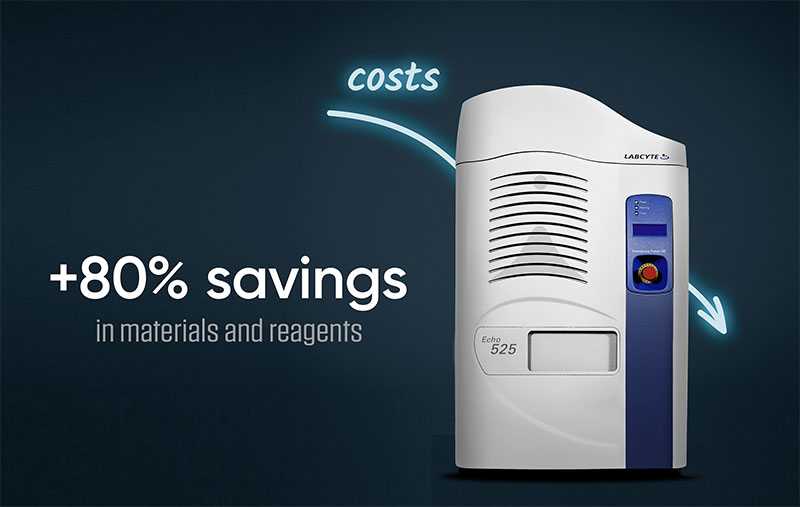Eric Chow
Director, University of California San Francisco (UCSF)Center for Advanced Technology (CAT)

As the costs of sequencing continue to come down, we have finally achieved the dream of the $1,000 genome. But preparing the samples to be sequenced remains in the realm of nightmares, with expensive reagents limiting the amount of work most labs can afford to do.
One way to cut these costs is miniaturization; by using smaller sample volumes, less reagent is required. The addition of an Echo 525 Liquid Handler in Chow’s shared resource center has enabled scientists across UCSF to benefit from miniaturization when setting up their samples, resulting in significant savings of both time and money.
Hundreds of academic and commercial scientists use the CAT facility, which houses standard research equipment such as qPCR machines and plate readers as well more advanced equipment such as next-generation sequencing systems, digital PCR, and liquid handling robots.
Prior to acquiring the Echo system in 2016, library preparation was either done by hand, or by using traditional tip-based liquid handlers. These libraries were subject to human variability and needless waste due to limitations of manual pipetting volumes, and it became apparent to Chow, who became director in 2013, that a quicker, more efficient system was needed in order to handle high-throughput applications.
The Echo technology was attractive because of its high-precision, high-speed capabilities. Ease of use was also a consideration, as the facility is open access, with most users operating the equipment themselves after short training sessions.

The center’s users are varied, as are their uses of the Echo system, from qPCR to cloning to small-scale drug screening and synthetic biology applications. For most of them, a quick 15-minute session on the system is all they need to get started on the Echo Liquid Handler.
In his own test of the system, Chow found that combining the Echo 525 Liquid Handler and the iSeq and NovaSeq Illumina sequencing platforms to miniaturize and automate metagenomic next generation sequencing (mNGS) library preparation significantly reduced the cost and the time required to prepare samples.
As reported in a recent bioRxiv pre-print, Chow and colleagues used External RNA Controls Consortium (ERCC) spike-in RNAs, to demonstrate the fidelity of the miniaturized preparation.